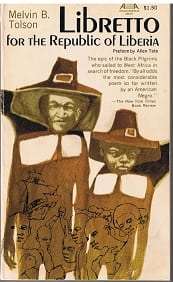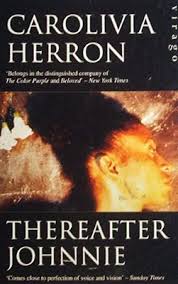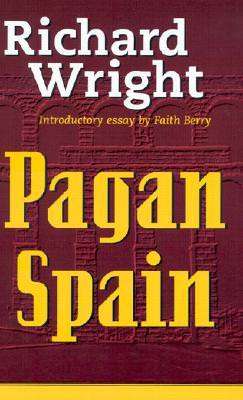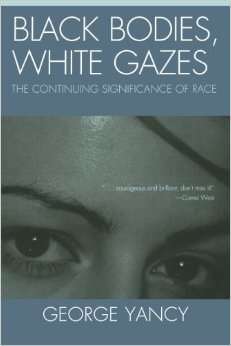As an African-American writer, I have long been a student of black writers from many different genres who have influenced, inspired, challenged, enlightened, and entertained me. We’ve all heard of the obvious ones: the speeches of Frederick Douglass, the poetry of Langston Hughes and Gwendolyn Brooks, Ralph Ellison’s Invisible Man, Alice Walker’s The Color Purple, and Toni Morrison’s Beloved, just to name a few. But there’s a treasure trove of lesser-known works of African-American writing that have had a big impact on me and deserve to be read.
Here’s my list of books that you might not know about. (I’ve chosen books in different categories in order to avoid having my special favorites competing in my head with every other favorite book of its type.)
A book of poetry:
Libretto for the Republic of Liberia by Melvin B. Tolson (1953)
 Denzel Washington played the part of Tolson the teacher/scholar and civil rights advocate in the movie The Great Debaters. Tolson was also a poet of high modernism, very much in the vein of T.S. Elliot and Ezra Pound. In 1947, Tolson was elected Poet Laureate of the Republic of Liberia, the country founded by liberated American slaves. Tolson’s Libretto looks back at African and American history from the perspective of a future in which Liberia is the hub of a thriving techno-industrial economy. In my novel, Silhouette of Virtue, African-American philosophy professor Dr. Nathan Rivers recites lines from Tolson’s Libretto while consorting with students a college town bar, the Ale Begotten Pub.
Denzel Washington played the part of Tolson the teacher/scholar and civil rights advocate in the movie The Great Debaters. Tolson was also a poet of high modernism, very much in the vein of T.S. Elliot and Ezra Pound. In 1947, Tolson was elected Poet Laureate of the Republic of Liberia, the country founded by liberated American slaves. Tolson’s Libretto looks back at African and American history from the perspective of a future in which Liberia is the hub of a thriving techno-industrial economy. In my novel, Silhouette of Virtue, African-American philosophy professor Dr. Nathan Rivers recites lines from Tolson’s Libretto while consorting with students a college town bar, the Ale Begotten Pub.
A novel:
Thereafter Johnnie by Carolivia Herron (1991, 2001)
 In this novel, the legacy of slavery and oppression visits Dr. John Christopher, an African-American heart surgeon at Howard University. Dr. Christopher is possessed by an unquenchable erotic passion for his daughter Patricia. After years of lying dormant, this passion is roused by the girl’s awestruck adoration of her father’s god-like power to take and give life. The surgeon demonstrates his near omnipotence to his children in an act of psychological violation that surpasses the incest that follows it. Thereafter, Patricia’s life becomes a relentless campaign to be her father’s sexual possession and obsession. The existence of Johnnie, her daughter and sister, is the emblem of Patricia’s triumph of desire over shame. The book is told in many voices, but the unifying voice is the bewitching voice of Johnnie, which channels the anguish and taboo pleasures of incest. The novel’s crowning achievement lies in the credible portrayal of the inner worlds of women of every racial hue and temperament as they are touched by the great American sin.
In this novel, the legacy of slavery and oppression visits Dr. John Christopher, an African-American heart surgeon at Howard University. Dr. Christopher is possessed by an unquenchable erotic passion for his daughter Patricia. After years of lying dormant, this passion is roused by the girl’s awestruck adoration of her father’s god-like power to take and give life. The surgeon demonstrates his near omnipotence to his children in an act of psychological violation that surpasses the incest that follows it. Thereafter, Patricia’s life becomes a relentless campaign to be her father’s sexual possession and obsession. The existence of Johnnie, her daughter and sister, is the emblem of Patricia’s triumph of desire over shame. The book is told in many voices, but the unifying voice is the bewitching voice of Johnnie, which channels the anguish and taboo pleasures of incest. The novel’s crowning achievement lies in the credible portrayal of the inner worlds of women of every racial hue and temperament as they are touched by the great American sin.
A play:
No Place to be Somebody by Charles Gordone (1969)
 Gordone became the first African American to win the Pulitzer Prize for Drama with this play, which was also the first off-Broadway play to receive a Pulitzer. The play centers on a black bartender, Johnny Williams, and his dealings with the mob on the south side of Chicago. Gabe Gabriel, a virtual fixture at the bar, is an actor and writer who never gets parts because his skin is too light to be cast in stock roles for black males. Gabe’s soliloquy is a famous breakout statement about the identity and process of the black writer. It’s difficult to find stand-alone reprints of the screenplay, but on YouTube there are some very good productions of the best parts of the play, including a PBS TV from 1969.
Gordone became the first African American to win the Pulitzer Prize for Drama with this play, which was also the first off-Broadway play to receive a Pulitzer. The play centers on a black bartender, Johnny Williams, and his dealings with the mob on the south side of Chicago. Gabe Gabriel, a virtual fixture at the bar, is an actor and writer who never gets parts because his skin is too light to be cast in stock roles for black males. Gabe’s soliloquy is a famous breakout statement about the identity and process of the black writer. It’s difficult to find stand-alone reprints of the screenplay, but on YouTube there are some very good productions of the best parts of the play, including a PBS TV from 1969.
A collection of literary essays:
Pagan Spain by Richard Wright (1957)
 Wright, author of Native Son, traveled extensively through Spain in three trips during 1954-55, interviewing everyone from philosophers to gypsies to nuns. The book reads as though a Martian was chronicling the cruelties, oppression, and public enactments of Franco’s fascist regime. Wright ignored what official histories, the church and the government had to say about Spain, and looked starkly at what the patriarchal tyrant was accomplishing through the cult of the phallus, the same cult that orchestrated bull fighting before the onset of Christianity in Iberia. Wright seems to have concluded that Christianity has never been more than a thin veneer in Spain, and that Spain’s orbit in relationship to the center of Western culture was radically elliptical, oscillating from being totally identified with the West, to virtually breaking away as a free-roaming wanderer. No surprise that the book was never popular in Spain, but it’s still in print. Ever the iconoclast and world citizen, Wright went on to make films in Brazil and to devote himself thoroughly to the haiku form.
Wright, author of Native Son, traveled extensively through Spain in three trips during 1954-55, interviewing everyone from philosophers to gypsies to nuns. The book reads as though a Martian was chronicling the cruelties, oppression, and public enactments of Franco’s fascist regime. Wright ignored what official histories, the church and the government had to say about Spain, and looked starkly at what the patriarchal tyrant was accomplishing through the cult of the phallus, the same cult that orchestrated bull fighting before the onset of Christianity in Iberia. Wright seems to have concluded that Christianity has never been more than a thin veneer in Spain, and that Spain’s orbit in relationship to the center of Western culture was radically elliptical, oscillating from being totally identified with the West, to virtually breaking away as a free-roaming wanderer. No surprise that the book was never popular in Spain, but it’s still in print. Ever the iconoclast and world citizen, Wright went on to make films in Brazil and to devote himself thoroughly to the haiku form.
A philosophical critique of American culture:
Black Bodies, White Gazes: The Continuing Significance of Race by George Yancy (2008)
 A philosopher with a nuanced grasp of dynamic psychology, Yancy explores how race and history perpetually condition the internal experience of whites and blacks. Yancy exposes the presumptive world of whites as unmarked, unraced, civilized, and normal. Its counterpoint is the black body and blackness, which is experienced as aberrant—the unwelcomed, the savage, the location of danger, death, and doom. The brilliant opening essay “The Elevator Effect: Black Bodies/White Bodies” examines racial/gender dynamics between the black man and the white woman on an extensive elevator ride that is a microcosm of our entire society. Yancy describes how whiteness posits itself as the existentially normative transcendent subject, as the ground of being, whereas the black body is framed as an opaque object, unknowable in its interior but “already known” in its fall from normal existence. Yes, this is heavy stuff, with philosophical nuances expressed even in the capitalization of black and not white throughout the book. Much more accessible is Dr. Yancy’s probing 15-part series of interviews with contemporary philosophers of note on the topic of race in the New York Times Opinionator blog, “The Stone.”
A philosopher with a nuanced grasp of dynamic psychology, Yancy explores how race and history perpetually condition the internal experience of whites and blacks. Yancy exposes the presumptive world of whites as unmarked, unraced, civilized, and normal. Its counterpoint is the black body and blackness, which is experienced as aberrant—the unwelcomed, the savage, the location of danger, death, and doom. The brilliant opening essay “The Elevator Effect: Black Bodies/White Bodies” examines racial/gender dynamics between the black man and the white woman on an extensive elevator ride that is a microcosm of our entire society. Yancy describes how whiteness posits itself as the existentially normative transcendent subject, as the ground of being, whereas the black body is framed as an opaque object, unknowable in its interior but “already known” in its fall from normal existence. Yes, this is heavy stuff, with philosophical nuances expressed even in the capitalization of black and not white throughout the book. Much more accessible is Dr. Yancy’s probing 15-part series of interviews with contemporary philosophers of note on the topic of race in the New York Times Opinionator blog, “The Stone.”



